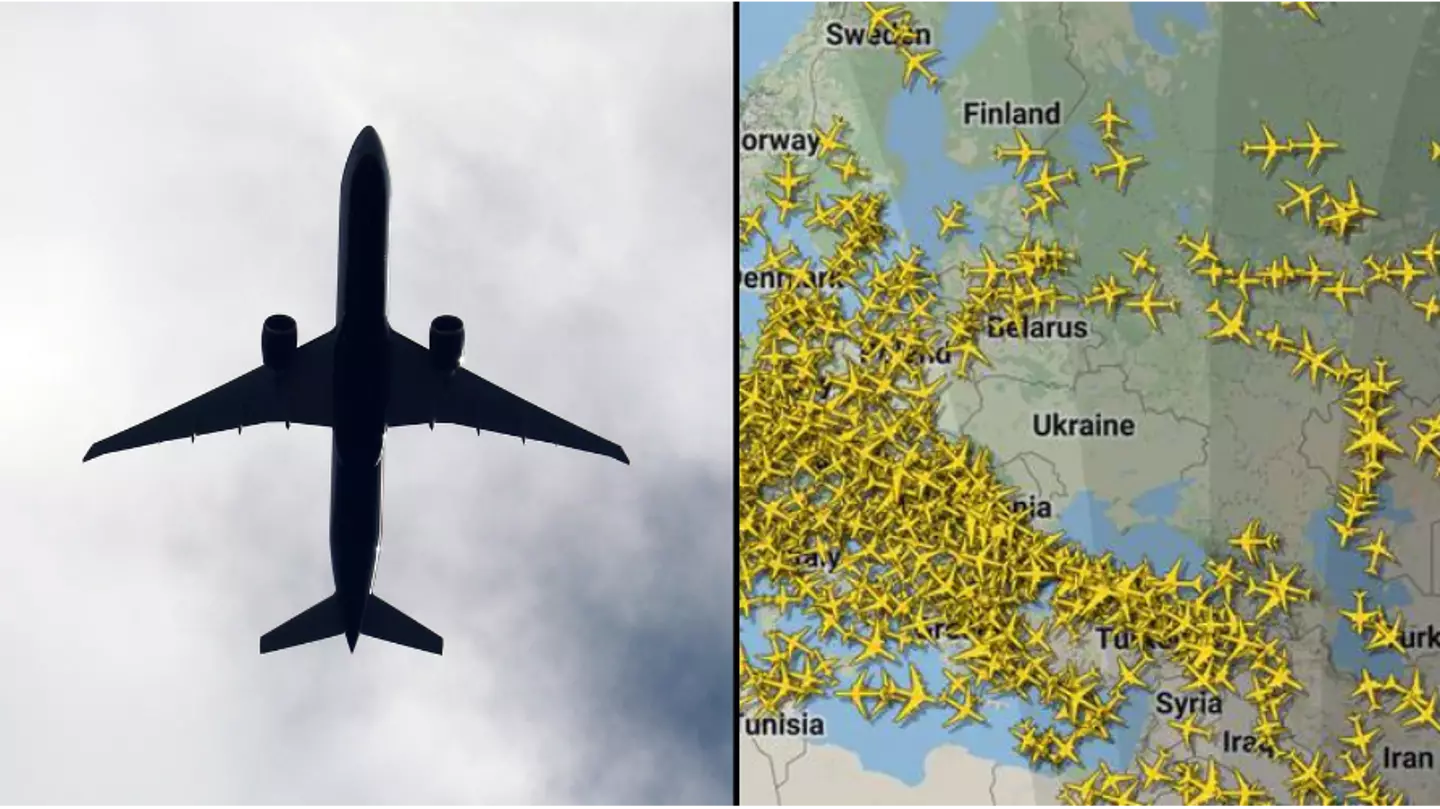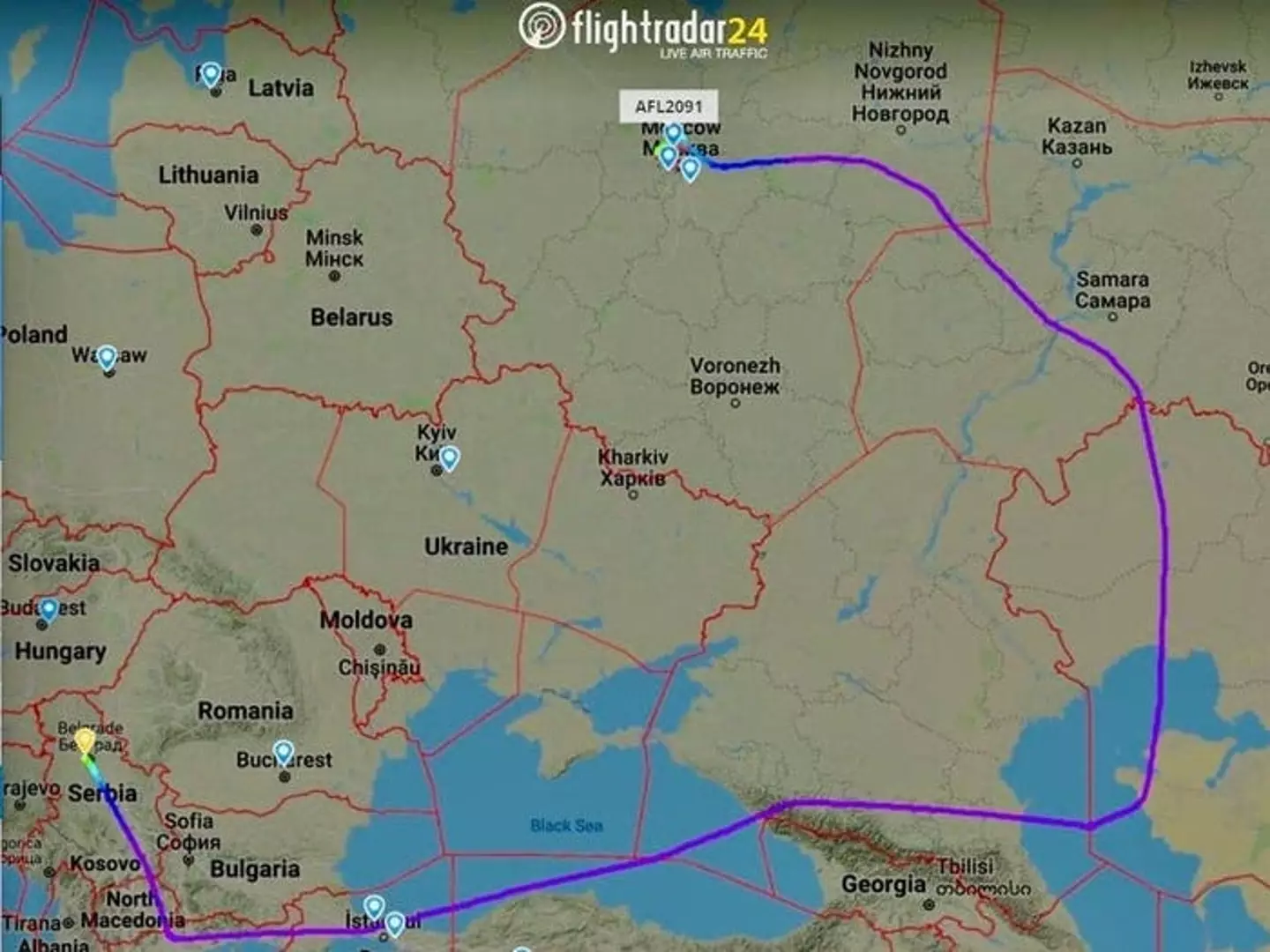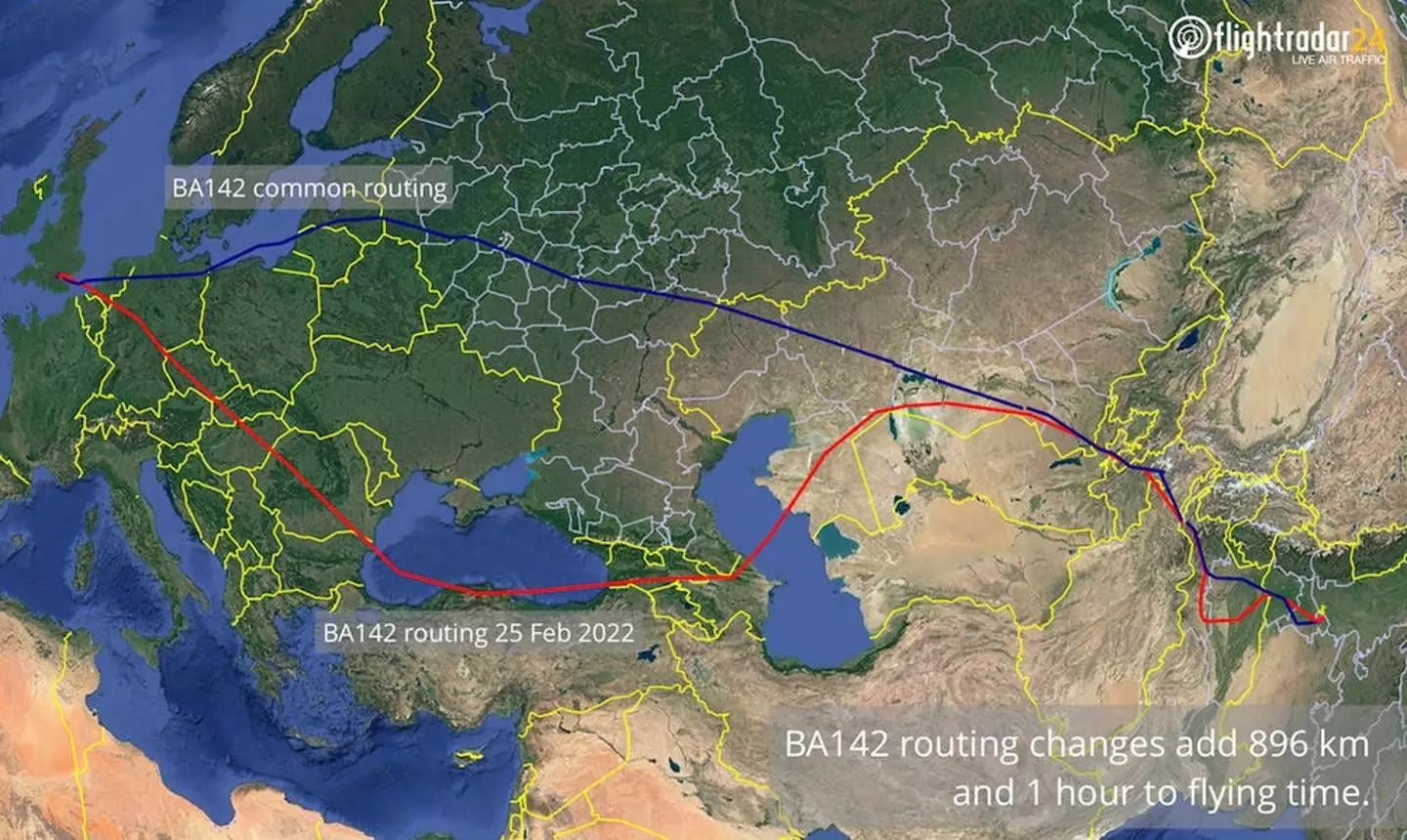
Airlines have been hit with higher costs and longer flight times after the European Union closed its airspace to Russia.
On Sunday (27 February), the EU announced ‘any plane owned, chartered or otherwise controlled by a Russian legal or natural person’ would no longer have access to its airspace.
The move came as part of a sanctions package aimed to punish President Putin’s regime after Russia invaded Ukraine.
Russia responded on Monday (28 February) by closing its airspace to 36 countries, including all 27 members of the EU and the UK.
Advert
Airlines must now come up with alternative routes to avoid these restrictions, which in turn adds hours of extra flight time and thousands in extra operating costs.
Russian airline Aeroflot was one of the first to be hit by EU airspace closures.
On Sunday, an Aeroflot flight took off from Belgrade, Serbia, to Moscow – a flight that would typically fly across Eastern Europe to arrive in Russia.
However, due to the EU’s airspace restrictions, the plane had to fly around Bulgaria and across Turkey to finally arrive in Russian airspace, according to FlightRadar24.
Overall, the flight took five hours and 45 minutes – three hours longer than usual.

And it’s not just Russian airlines feeling the full force of restrictions. British Airways, for example, had to adjust its route from New Delhi to London, therefore adding one hour to the flight time.
Experts have now said these detours are ramping up the cost of fuel, labour and maintenance, all of which could lead to an increase in passenger fares and cargo rates.
“Some routings will simply become uneconomic or impractical,” aviation consultant Robert Mann told ABC News.
Following this news, it seems some airline carriers have had no choice but to suspend flights.
According to Insider, Virgin Atlantic Airways temporarily axed cargo service between London and Shanghai, Finnair stopped flights to airports in Japan, China, and South Korea, and Singapore Airlines ended service to Moscow.
If that wasn’t enough for airlines to contend with, the EU have also asked that aircraft leasing companies cancel all their existing contracts with Russian airlines by 28 March, meaning those planes must be returned to their foreign owners.

It is thought that Russian officials could impose their own obstacles to make this near-impossible.
Henry Harteveldt, analyst and president of Atmosphere Research Group, told Insider: “It's possible the government could choose to challenge the lessors' abilities to repossess these planes.
“Who is going to fly these airplanes from Russia? How do the airlines get their Russian pilots back home again? All the logistics have to be figured out.”
Topics: Travel, Russia, Ukraine, World News
